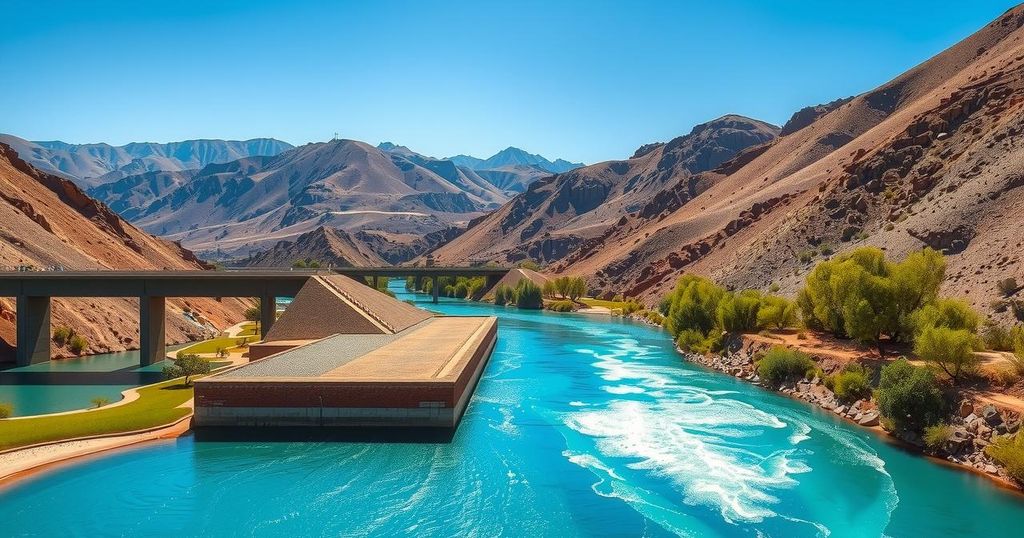Morocco’s Water Highway: A Temporary Solution Facing Sustainability Challenges
Morocco has invested $728 million in a ‘water highway’ to redirect surplus river water to urban centers facing severe drought. While the project is addressing immediate water shortages for millions, experts question its sustainability in the context of climate change and declining rainfall. Additional strategies are recommended to ensure long-term water availability.
Morocco is investing heavily, approximately $728 million, in a project referred to as the “water highway” aimed at redirecting water from the Sebou River to support water-scarce southern cities such as Rabat and Casablanca. This initiative is intended to address the immediate water supply crisis in these densely populated urban areas, with plans to extend the project further south to Marrakesh in the future. Officials assert the project is successfully averting a potential water shortage affecting around 12 million residents, as highlighted by Mahjoub Lahrache, a senior official from the agriculture ministry.
The country has historically faced significant rainfall disparities, with 53% of precipitation occurring in only 7% of national territory, as stated by Water Minister Nizar Baraka. In late 2023, Rabat narrowly avoided a water crisis when its primary reservoir depleted. The “water highway” primarily utilizes surplus water from the Sebou, which has typically presented sufficient flow even in dry months. A diversion dam built in Kenitra allows for storing and redirecting this water effectively to urban centers via a 67-kilometer underground canal.
Since its inauguration in August, the project has delivered over 700 million cubic meters of drinking water to Rabat and Casablanca, according to governmental reports. However, experts express concern about the sustainability of this water source amid ongoing climate challenges. Following six consecutive years of drought, Morocco’s water supply has drastically decreased, with a historic annual drop from an average of 18 billion cubic meters in the 1980s to just five billion today. Despite some rainfall, the country remains predominantly within drought conditions with precipitation levels 75% below historical averages.
Morocco’s “water highway” project represents a crucial step in addressing immediate water shortages in large cities, diverting resources from northern rivers to southern regions. Nonetheless, experts voice significant concerns regarding the project’s long-term viability due to climate change and ongoing drought conditions. They call for complementary strategies, such as improved irrigation practices and investments in desalination, to ensure a sustainable water supply for Morocco’s future needs.
Original Source: www.thedigitalcourier.com




Post Comment